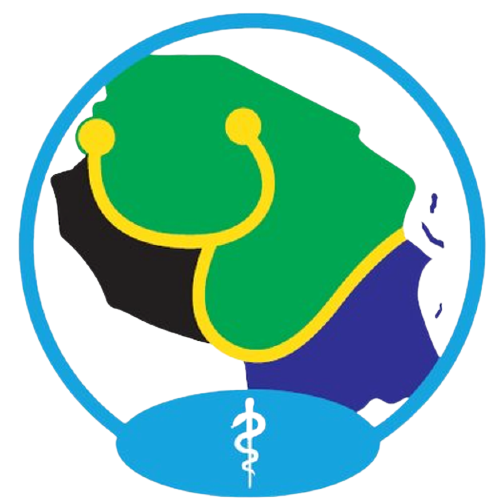Our Stories
“Gender Equity Begins With The Right To Choose”: Unpacking Reproductive Justice In Tanzania

19th June 2025 | Gender, Rights & Reproductive Health
At the ENGENDER Forum, leaders, youth, and advocates declared that true gender equity begins with reproductive rights—calling for inclusive, informed, and youth-centered approaches to contraception access, education, and empowerment across Tanzania.
“You cannot speak of empowerment when women don’t have control over their reproductive lives,” said Dr. Kuduishe Kisowile, Co-Founder of the Fides Influencers Network, opening the ENGENDER Forum session during the 11th Tanzania Health Summit. His words echoed through the packed auditorium, calling attention to a truth long felt but often unspoken in public health discourse—gender equity begins with reproductive justice.
Organized by Engender Health Tanzania, the session brought together stakeholders from the Ministry of Health, CSOs, women’s rights advocates, youth leaders, and healthcare providers. The forum centered on dismantling the persistent inequalities Tanzanian women face in accessing contraception—especially emergency contraceptives (ECs)—and the deeper cultural, social, and structural forces that hinder true reproductive autonomy.
A key data point set the tone for the session: usage of emergency contraceptives has surged from 1.9 percent in 2019 to 60 percent by 2023. On the surface, this appears to be a triumph of access and awareness. But panelists warned it also signals gaps in comprehensive family planning education, misuse of ECs as a primary method, and a reactive rather than proactive reproductive strategy.
Machumu Miyeye from the Ministry of Health presented findings that 83 percent of EC users were unaware of the proper usage timeframe, leading to widespread misinformation. “This is not just a health issue—it’s a rights issue,” he stated. “Every woman must have the correct information, delivered respectfully and without bias.”
Access to accurate information, however, is unevenly distributed. While urban areas benefit from digital health platforms and pharmacy availability, women in rural communities are often left behind. These women face multiple overlapping barriers: lack of privacy, absence of youth-friendly services, social stigma, low health literacy, and economic constraints. This disconnect has prompted calls for a gender lens in reproductive health delivery, recognizing that access is not just about product availability—it’s about power, agency, and inclusion.
Suma David Jairo, speaking on behalf of the Reproductive Health Unit at the Ministry of Health, stressed the need to reshape how services are delivered. “Health systems must actively challenge gender norms,” she said. “We must ask: who makes the decision in a household? Who controls the money? Who faces the blame when contraception fails?”
Indeed, patriarchal norms often leave women and girls vulnerable, especially in conservative or male-dominated households. Participants discussed the need to expand education campaigns not just for women, but for men and boys, who often influence reproductive decisions. Programs that engage fathers, partners, and male leaders were seen as essential to reducing stigma and shifting cultural expectations.
The role of the media, particularly digital platforms, was another focal point. Oscar Kimaro, moderator of the panel, emphasized that social media can be a double-edged sword spreading both empowering information and harmful myths. Panelists called for content moderation, promotion of evidence-based reproductive health messaging, and training influencers and content creators to align with ethical health communication standards.
Another key issue raised was the affordability and consistency of EC supplies. Despite increased demand, stockouts in public health facilities and pharmacies remain frequent. This forces many women to rely on unregulated sources or go without, risking unintended pregnancies. Panelists recommended improved supply chain forecasting, expanded public-private partnerships, and the inclusion of ECs in health insurance schemes to close the equity gap.
Throughout the session, voices from youth-led organizations emphasized that young people must be seen as partners, not just beneficiaries. They demanded stronger investment in peer-to-peer education, school-based comprehensive sexuality education (CSE), and support for youth-friendly clinics that ensure privacy and dignity. Data shows that less than 40 percent of secondary schools currently offer CSE modules, despite their proven impact in delaying pregnancies and improving contraceptive uptake.
Speakers also discussed the importance of intersectionality in reproductive justice. Poor women, rural girls, people with disabilities, and LGBTQ+ individuals face compounded discrimination in health access. The forum called for inclusive policies that recognize these unique challenges and ensure no one is left behind.
At the core of the ENGENDER Forum was a call to reframe reproductive health as a human rights imperative. Dr. Kisowile concluded the session with a clear message:
“The goal is not just fewer pregnancies—it is more choices. The freedom to choose, the information to decide, and the power to act. That is gender equity.”
The session closed with a collective set of recommendations:
- Integrate gender-responsive trainingfor all healthcare providers, especially in rural and underserved regions.
- Invest in comprehensive, community-based educationusing digital, radio, and grassroots platforms.
- Expand affordable access to ECs and other methodsthrough pharmacies, clinics, and outreach programs.
- Engage men and boysas partners in reproductive health, challenging stigma and encouraging shared responsibility.
- Guarantee youth participationin program design, delivery, and evaluation.
- Ensure data systems are disaggregated by gender, age, and location, enabling more inclusive policymaking.
The ENGENDER session was not just a conversation. It was a collective declaration that reproductive rights are inseparable from gender justice. Through policy reform, education, and inclusive service delivery, Tanzania can create a future where every woman, regardless of where she lives or what she earns, has the power to make informed choices about her body and future.
For more details about PARTNERS, click the link: https://ths.or.tz/partners/
Register via the link: https://ths.or.tz/registration-selection/

